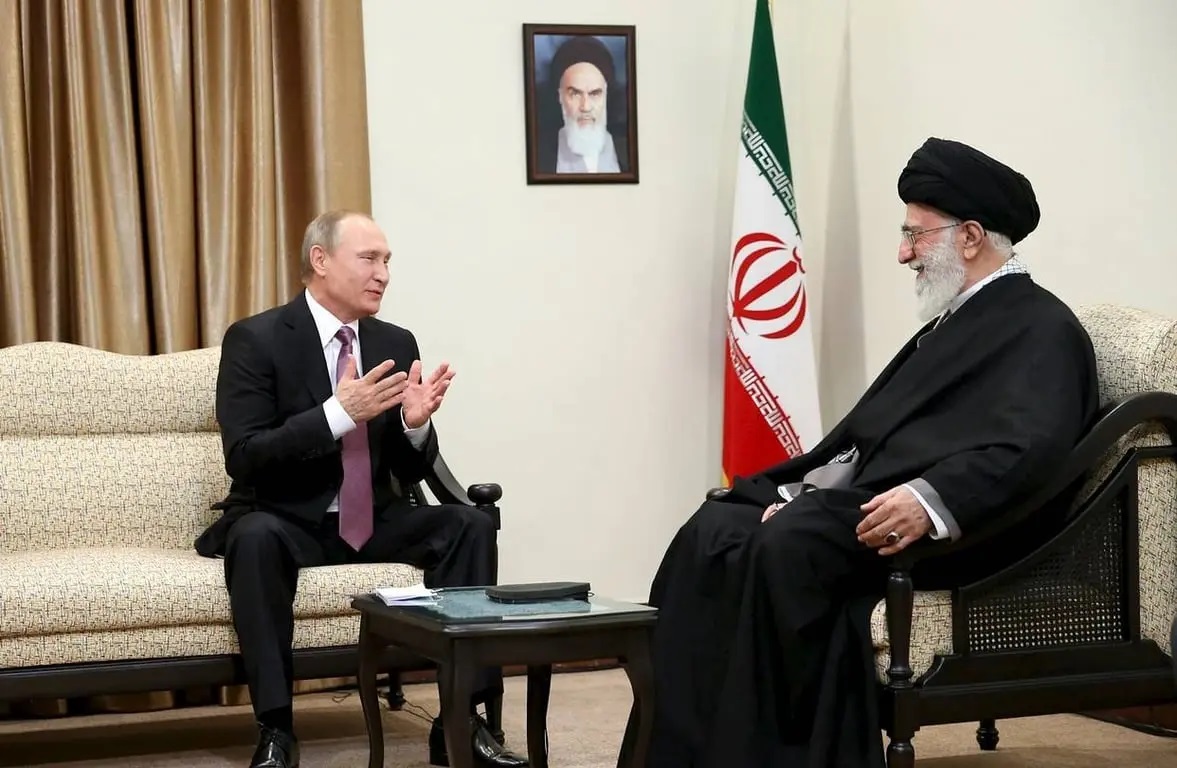Iran’s Supreme Leader Ayatollah Ali Khamenei has called on Russian President Vladimir Putin to take a stronger stance against the United States and Israel following recent U.S. airstrikes on Iranian nuclear facilities—the largest such strikes since Iran’s 1979 Islamic Revolution.
Iranian Foreign Minister Abbas Araqchi delivered a personal letter from Khamenei to Putin during a high-level meeting in Moscow on Monday.
The appeal follows Washington’s coordinated military action with Israel that struck multiple nuclear and military installations in Iran over the weekend.
Araqchi’s visit signals Iran’s growing frustration with what it sees as lukewarm support from Moscow. According to senior Iranian sources speaking to Reuters, Tehran expects “more robust backing” from Russia.
However, those familiar with the talks did not specify whether Iran was requesting direct military support or more aggressive diplomatic measures.
While the Kremlin confirmed Putin’s meeting with Araqchi, no official statement was issued detailing the discussions. State-run TASS quoted Araqchi saying that Tehran and Moscow were “coordinating positions” in response to the escalating regional conflict.
Despite condemning Israeli airstrikes last week and offering to mediate between Washington and Tehran, President Putin has remained publicly silent on the latest U.S. military intervention.
Analysts believe Putin is walking a tightrope: maintaining Russia’s strategic partnership with Iran without risking direct confrontation with the United States—especially as Russia continues its prolonged war in Ukraine.
The Russian president has long pitched Moscow as a neutral mediator in Middle East crises and has emphasized Iran’s right to civilian nuclear development.
Putin recently received assurances from Israel that Russian engineers working on the Bushehr nuclear power plant in Iran would not be targeted during ongoing strikes.
Russia and Iran signed a 20-year strategic cooperation pact earlier in 2025, but their relationship has been complex.
Although Moscow has purchased drones and missiles from Iran for use in Ukraine, the agreement between both nations does not include a mutual defense clause.
This limits the extent to which Russia is obligated to respond militarily in Iran’s favor.
Within Russia, some political figures have urged the Kremlin to increase its support for Iran, pointing to U.S. assistance to Ukraine as a model.
Suggestions include supplying Iran with air defense systems, satellite intelligence, and precision weaponry.
At the United Nations, Russia, along with China and Pakistan, introduced a draft resolution calling for an immediate and unconditional ceasefire in the Middle East.
During the Security Council session, Russian Ambassador Vassily Nebenzia criticized the U.S. strikes, comparing them to the “fabricated” case for the Iraq War in 2003.
“We are once again being asked to believe Washington’s fairy tales,” Nebenzia stated.
“This only reinforces our belief that the U.S. has learned nothing from history.”
As Khamenei appeals to Moscow and Tehran weighs its next move, global leaders fear a broader escalation that could spiral beyond Iran and Israel.
Meanwhile, Iran’s parliament has approved a proposal to close the Strait of Hormuz, a vital oil transit chokepoint, further raising fears of economic disruption if tensions persist.
The international community is closely watching Russia’s next steps—whether it will deepen its role in the Iran-U.S. standoff or continue to walk a diplomatic tightrope.







